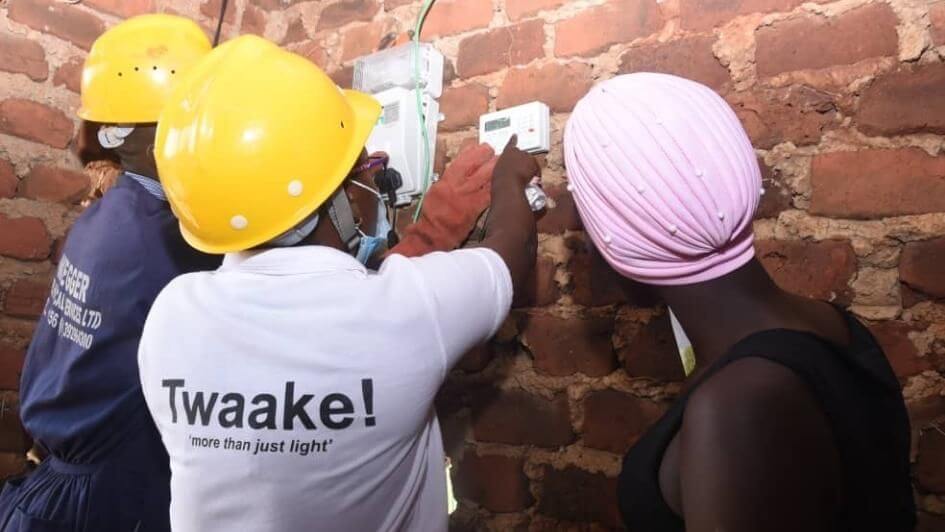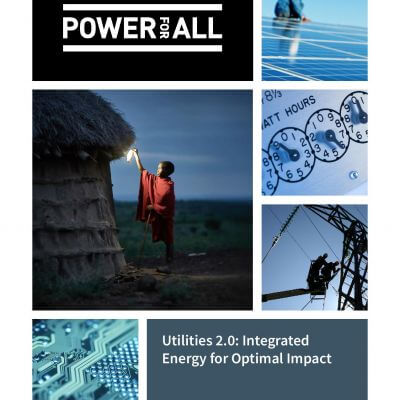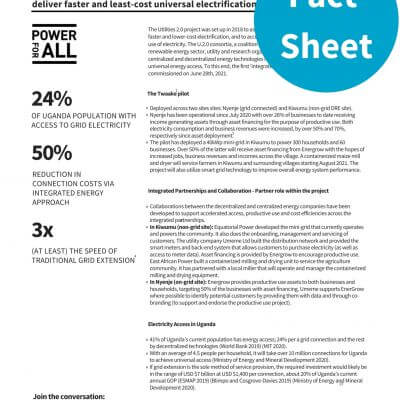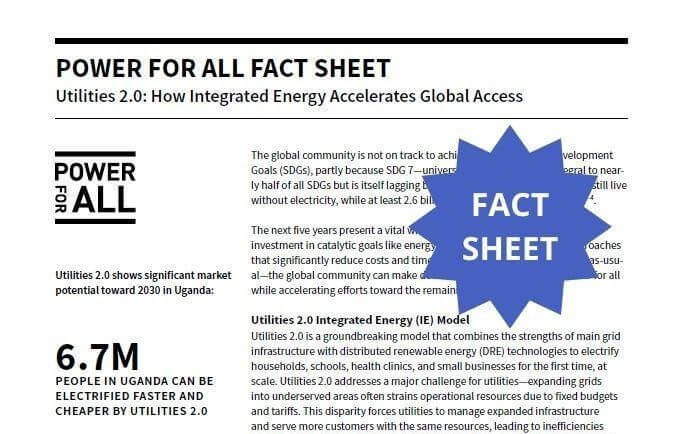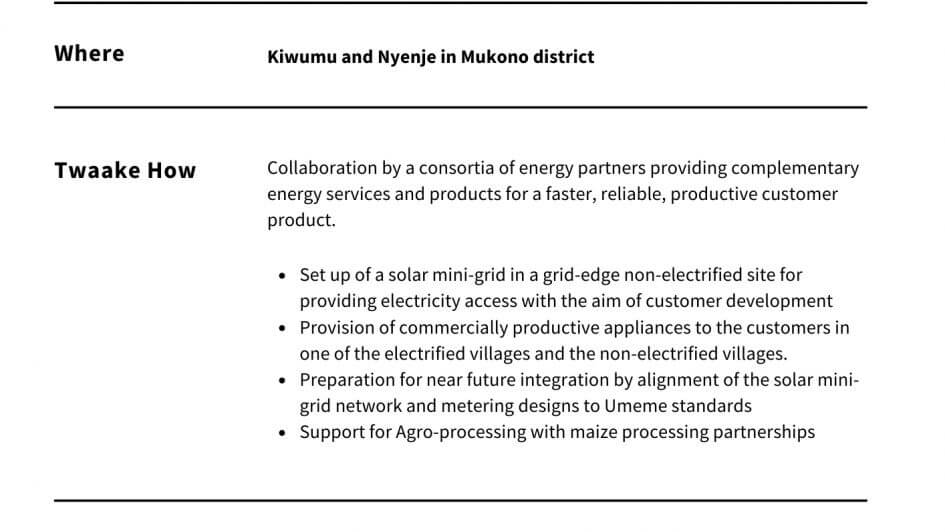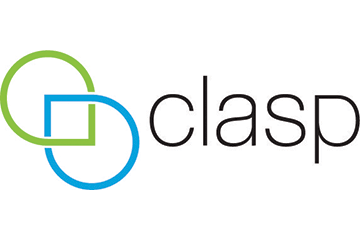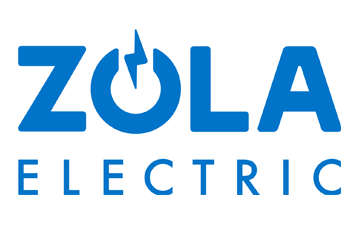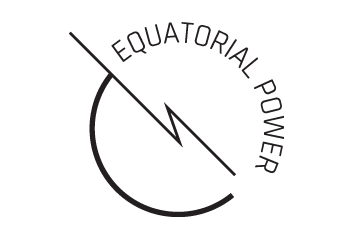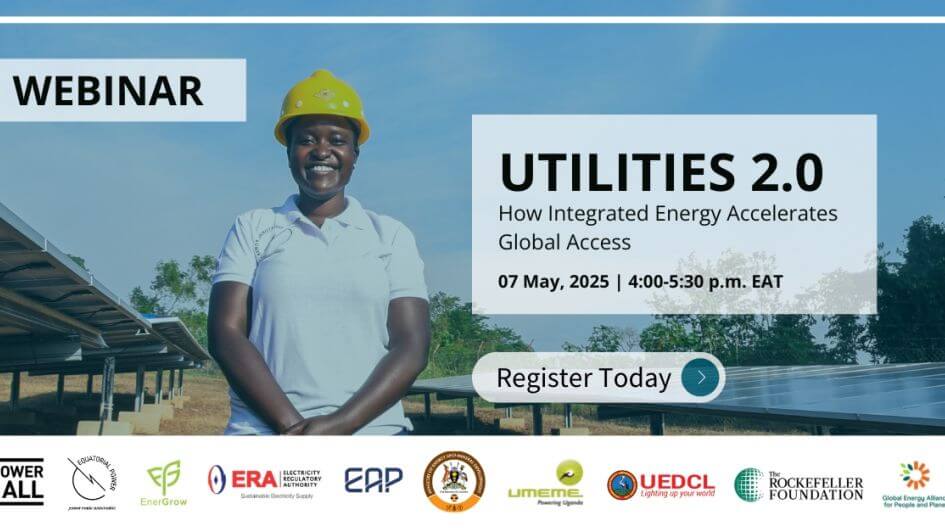Today, the state minister of Energy and Mineral Development, Honorable Okaasai Sidronius Opolot, commissioned a 40kWp mini grid in Kiwumu, Mukono district in Uganda to power 300 households and 60 local businesses.
Collaborate to Accelerate Access
Utilities 2.0 is a global initiative to unite centralized utilities and the decentralized renewable energy sector to end energy poverty faster.
In collaboration, centralized and decentralized electricity providers can design an optimal mix of energy technologies and service levels, solving for least-cost electrification in the fastest timeline possible.
Supporters
Utilities 2.0 is made possible thanks to the generous support of Jim Rogers and The Rockefeller Foundation.
Join Us
Want to learn more about this campaign or get your organization involved?
Join Us »
Utilities 2.0 will be demonstrated in Uganda with the below partners. For a complete list of partners see our Call to Action.
Recent and upcoming events relevant to the Utilities 2.0 initiative:
Reuters Global Energy Transition Awards 2024 Finalist.
This session will spotlight the Utilities 2.0 initiative—a pioneering model that combines the reach of centralized utilities with the agility of decentralized renewable energy. The result? Faster, more affordable, and scalable electricity access across Africa.

